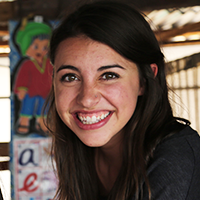
LIving with a Host Family
Check out these volunteer opportunities to save endangered animal speciesin countries around the world.
- Unparalleled high reviews and ratings, Guaranteed lowest program fees in the US – starting from $100 - $200 per week.
- 18 countries, 200 projects and thousands of happy volunteers since 2003,. Contact us for more information.
Host family
For those who have never lived with strangers, the idea of living with a host family abroad can be somewhat daunting. However, it should definitely not be feared and should be viewed as a vital part of you experience living and volunteering abroad. Having said that, it is a somewhat novel experience for most, so we’re going to go over some aspects of living with a host family and what you should expect.
What does life with a host family look like?
This obviously depends on both the family and the volunteer. Generally, the host family will endeavour to make you feel as much like a part of the family as possible. Most volunteers staying with a host family abroad will be given their own private rooms and be allowed access to shared parts of the house. The family will typically provide 3 meals each day which you will eat with the family. You will be expected to follow the family’s rules and in return you will be treated almost like a member of the family. It is important to remember that you are not staying in a hotel and therefore you cannot expect to be treated like you would in a hotel
Will I have chance for cultural immersion and language practice?
Host families are local people who are happy to open their homes up to volunteers. As such, there is no better way to experience the cultural of the area first hand as you will be fully immersed. You will share a home with a local family and as such will be living very much like a local. Generally, host families are more than happy to practice the local language with you. Mealtimes can be a great chance to spend time with the family and listen to and practice the language. At other times, it is important to be respectful of the family members’ time but there will undoubtedly be plenty of opportunities to practice with the family. Staying with a host family is an excellent opportunity and we recommend you to make the best use you can of it, learning as much as you can.
Will host family be friendly or will I be accepted easily?
Host families do so voluntarily and most enjoy the experience of sharing their home and their culture with somebody new. However, it is important to do your best to fit in with the family and respect their home and their culture. Make sure you ask your volunteer coordinator what rules you will need to respect, both official and unofficial. Host families will issue you with a set of rules but in addition, there may be certain expectations that are not mentioned explicitly.
Also, certain cultures are more indirect, so if you are doing something wrong, the host family may not wish to mention it directly. You may notice that their attitude towards has changed or they are not being welcoming. If you feel that something may be wrong, talk to local staff as they will have experience with members of the community and may be able to let you know what you are doing wrong. They will also know how to address the issue with the family on your behalf.

The volunteer experience was very eye-opening and I felt very much needed at the site. I would greatly recommend it.
Frances Yuan
- USA

The strong ties we built and the rewarding experiences that we made here were really very priceless.
Amelie Lim
- Australia

A lifetime experience, which has opened my eyes to so much, and impassioned me to pursue future volunteer trips.
Brandon
- USA

Overall a great experience! I can't think of any reason why I shouldn't recommend the program to others!
Lena Gustke
- Germany
Please read more RCDP reviews , also in abroad reviews (RCDP-Nepal), Abroad reviews (RCDP -international)
What are the benefits of living in host families?
There are a great many potential benefits to living with a host family. It is up to you to find as many as you can to get the most from your experience. Some potential benefits include (but are by no means limited to):
Learning the language
The quickest and most exciting way to learn a new language is complete immersion. Whilst, in many countries, English is wildly used for communication, it is not guaranteed that all members of your host family will speak English fluently. Our advice is to take time to sit down to grandma, grandpa or any family member who doesn’t speak English and just try to have a conversation. It may seem awkward at first, but you will find it becomes easier and easier and more and more fun!
Experiencing a new culture
Whilst any time spent in a country or culture different from your own will allow you to observe the culture, living with a family is a much sincerer way of actually experiencing how people live day-to-day.
Eating like a local
When you stay with a local family, you will be eating the way that real locals eat. Even in restaurant, you are likely to find that the food is often catered somewhat to foreigners or is not representative of the real life experience. Nobody eats out every day! Live with a local family and find yourself exposed to new and wonderful dishes. If you’re lucky, you might even go home with some new recipes in your arsenal.
New friends
So many volunteers go home claiming that their favourite part of the volunteer abroad experience is their host family. You will be living with these people, often for a number of weeks. It is impossible not to become close and attached and many volunteers stay in touch with their host families.
What do I need to know while living in host families?
One of the most important things to do when living with a host family is to be aware of their rules and their culture and to respect both accordingly. You can do this by talking to your volunteer organisation beforehand. They will be able to tell you about any aspects of the culture that may take getting used to.
This can vary from obvious things such as not wearing shoes in the house, or not bringing alcohol into a Muslim household, to not walking around the house in pyjamas/bedclothes. The best advice with general household behaviours is to observe the family and how they behave in the house and to follow suit. Does everyone bring their own dishes to the kitchen after meals? Are you allowed to help yourself to food between meals? Do they remove their shoes at the door? If there’s anything you are not sure about, just ask. If it’s embarrassing or delicate, talk to the in-country support and they will help you to address the issue.